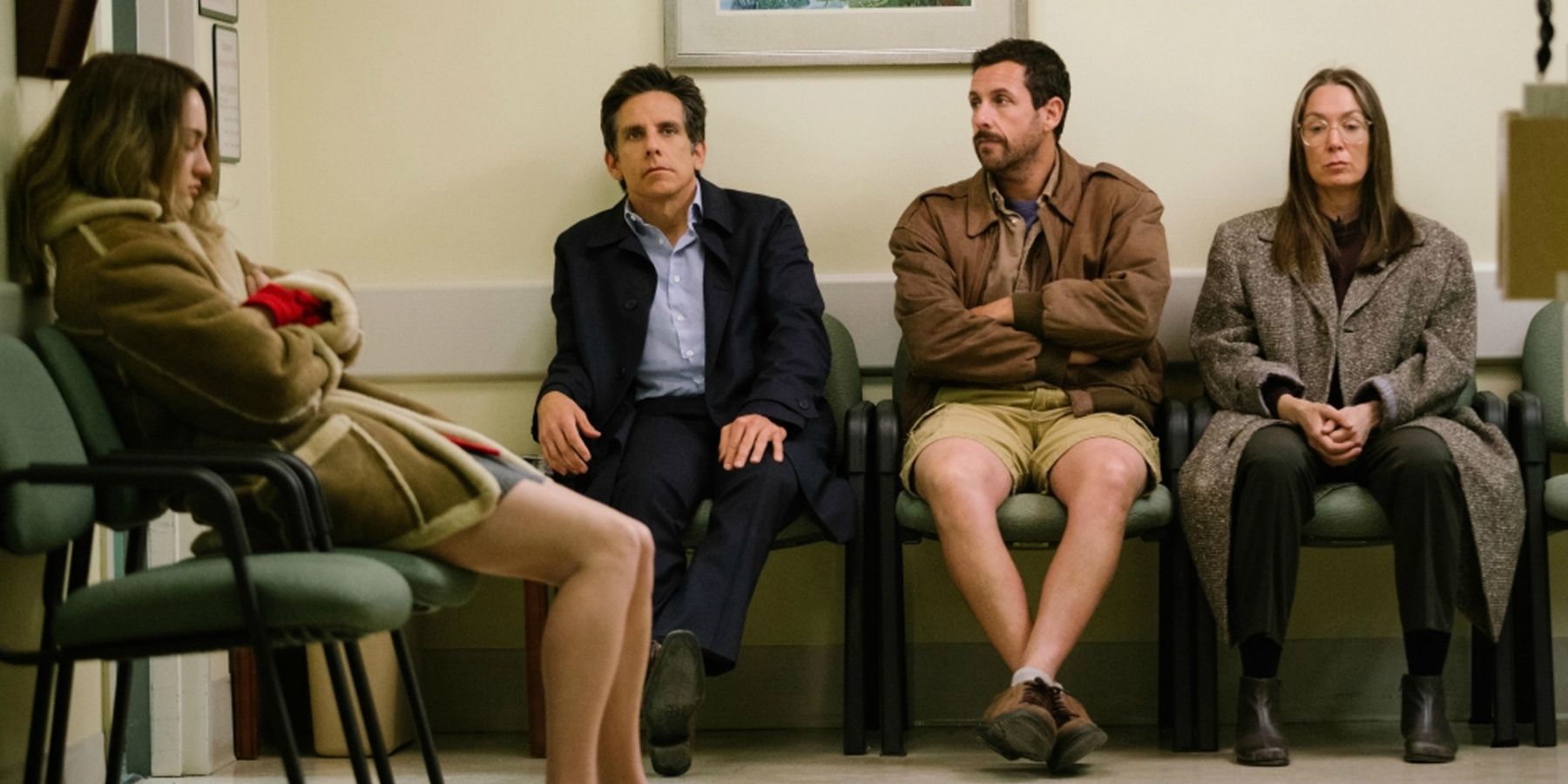Last year, the Cannes Film Festival, widely considered the most prestigious festival of its kind in the world, made the ground-breaking step to allow Netflix films to screen in competition. Bong Joon-ho’s environmental drama Okja and Noah Baumbach’s family dramedy The Meyerowitz Stories premiered in competition, allowing them to compete for the Palme D’Or. While neither film won any awards, both received warm critical acclaim and helped to establish the streaming service as proper forces to be reckoned with in the cut-throat world of international cinema.
As Netflix films, they found themselves at the center of the storm that embroiled the entire competition, along with one difficult question: Should Netflix films be allowed in competition at Cannes in the first place?
RELATED: Steven Spielberg Says Netflix Movies Should Qualify for Emmys, Not Oscars
Why Netflix are Banned From Competition at Cannes
Jump forward to this year, and Cannes is getting ready to announce their new line-up. While speculation is rife, we can be sure that Netflix won’t be making a repeat performance, as the festival's artistic director Thierry Frémaux announced that the streaming service will no longer be eligible to compete for the Palme. In an interview with Le Film Francais, Frémaux, who has been in charge of the festival’s line-up since 2007, explained his decision:
“Last year, when we selected these two films, I thought I could convince Netflix to release them in cinemas. I was presumptuous, they refused... The Netflix people loved the red carpet and would like to be present with other films. But they understand that the intransigence of their own model is now the opposite of ours. We have to take into account the existence of these powerful new players: Amazon, Netflix and maybe soon Apple. We’ll defend the image of a risk-prone festival, questioning the cinema, and we must be at the table every year."
Cannes’ reasoning behind banning Netflix films from the main competition – they can still screen films out of competition and in other categories like Un Certain Regard – are sensible and come from a good place. Yet it still feels like, by excluding Netflix movies, Cannes is going against the grain of where cinema is heading.
Netflix and Cannes Are a Bad Fit
Like most film festivals, Cannes is as much an industry market as it is a series of screenings. Studios, producers and filmmakers bring their movies to the festival in the hopes of securing funding and distribution. Netflix and other similar services like Amazon have proven themselves to be very powerful players in that game, acquiring major movies for top dollar at festivals. In that regard, Cannes could be a good fit for Netflix. However, major studios bringing films to the festival when they already have a distributor, thus crowding out the market for those that still need such attention, has its obvious downsides.
RELATED: The 25 Best Films on Netflix Right Now
French cinema also operates on a fundamentally different level to most nations in terms of how films are distributed. The French government have various laws in place designed to support both local film production and French movie theaters. The sales of DVDs are prohibited for four months following the film's screening in cinemas, thus ensuring cinema owners are guaranteed solid revenue. This model is a positive step forward for supporting the cinema experience, particularly as worldwide grosses take a beating. It’s also completely opposed to Netflix’s streaming model. As Frémaux mentioned in his interview, he tried to get last year’s Netflix competition entries to agree to a cinema release, but it would have made the point of their business plan useless: They make films and stream them exclusively to get people to subscribe to the service. That doesn’t work when you make the film, release it in cinemas, then have to wait four months before you can stream it on your own site.
Why Cannes May Come To Regret The Netflix Ban
Cannes is a festival of intense prestige. It has always prided itself on bringing the cream of the crop to the forefront. They have obvious favorites who they like to invite back every year, and it can be near impossible to break into the competition ranks if you’re an unknown, or simply a filmmaker whom the festival director doesn’t like. That Netflix even got into competition is a miracle unto itself, given the opposition they faced.
Last year, it seemed like every director, actor and producer was asked about The Netflix Problem: Should they be at the festival, did they agree with the streaming model, did they think it would hurt the cinematic standard? Regardless of what critics thought of the respective films – and they were well liked, but they didn’t set the festival on fire with undeniable buzz – Netflix, in many ways, won Cannes simply by becoming the anti-establishment underdog. They wouldn’t play by the big boys’ rules, and so they were punished for it. What better publicity could they ask for?
In the long term, shutting Netflix out of the most beloved competition in film festival history could be a bad move. The service has shown itself to be an undeniable power player in modern cinema, putting major investments into films of all genres and attracting as many demographics as possible. A film like The Meyerowitz Stories may not encourage masses of new subscribers, but it did help establish Netflix as a studio willing to support films that have been deemed too risky or not cost effective enough for the indie market (it also encouraged Noah Baumbach to sign up with them for another exclusive movie). That approach has won them many friends, including a certain Martin Scorsese. His latest film, The Irishman, will be a Netflix exclusive. That’s the kind of film Cannes would usually scramble to include in their competition line-up, but now it’s simply not allowed. If more auteurs and festival favorites head to Netflix, choosing it over more traditional distributors, Cannes will miss out, and that will only hurt their status as the king-makers of cinema.
Netflix aren’t in danger of changing their business model any time soon, and certainly not just to appease Cannes. They have nothing to lose from being banned from competition, whereas Cannes could end up looking hopelessly archaic as cinema moves forward into the truly digital age. Their decision is understandable, and admirable in how it remains loyal to the classic mode of cinema (not to mention French law), but as Netflix gather more steam and attract greater talents to their side, it may be a choice they have second thoughts about.
More: Netflix Stock Hits All-Time High, Now Worth Over $130 Billion




